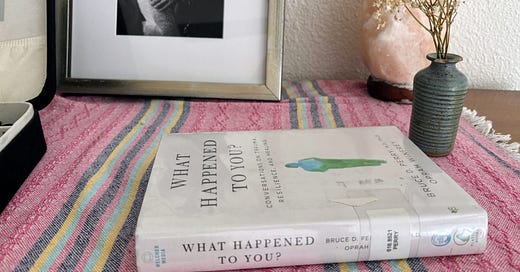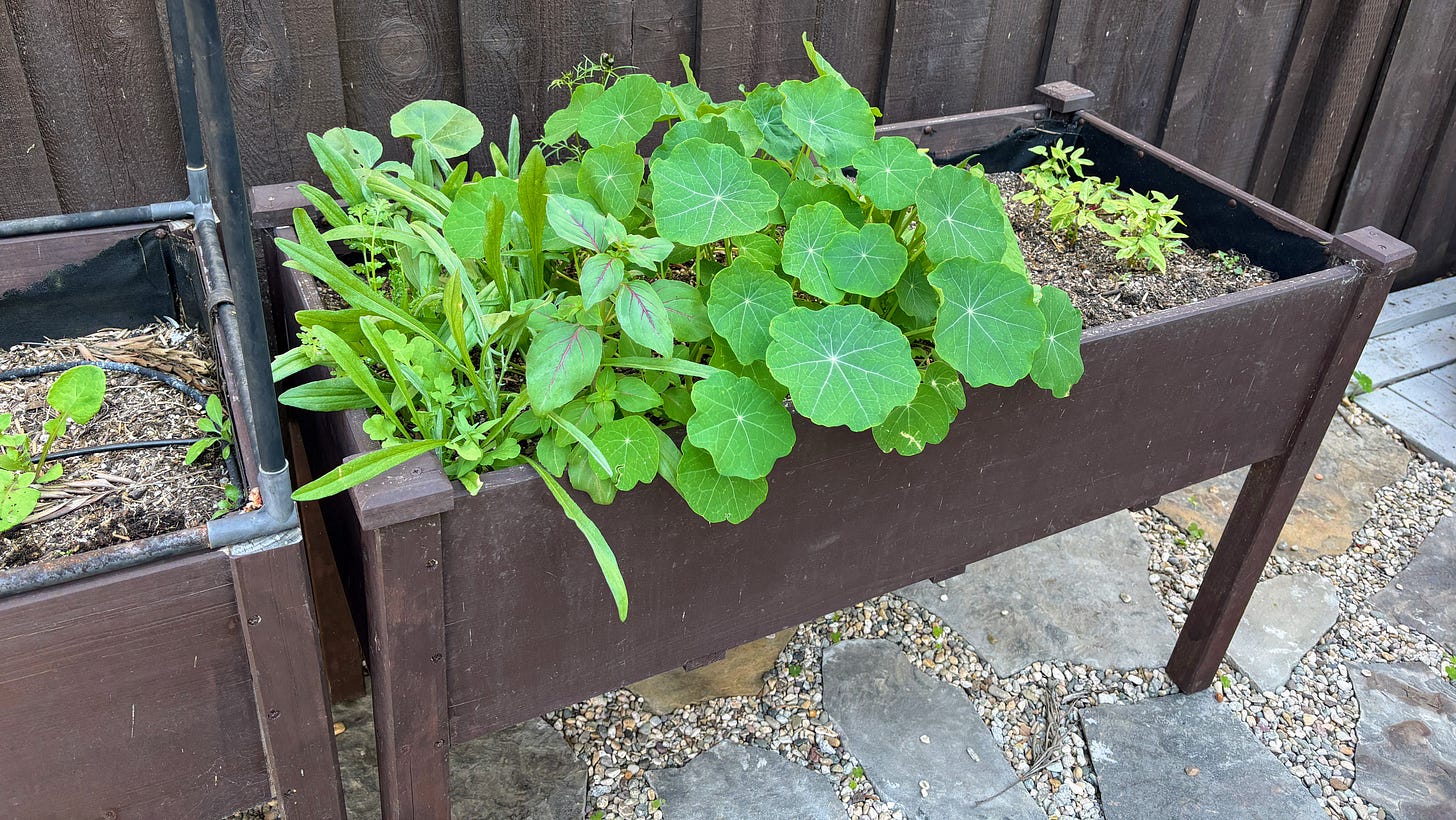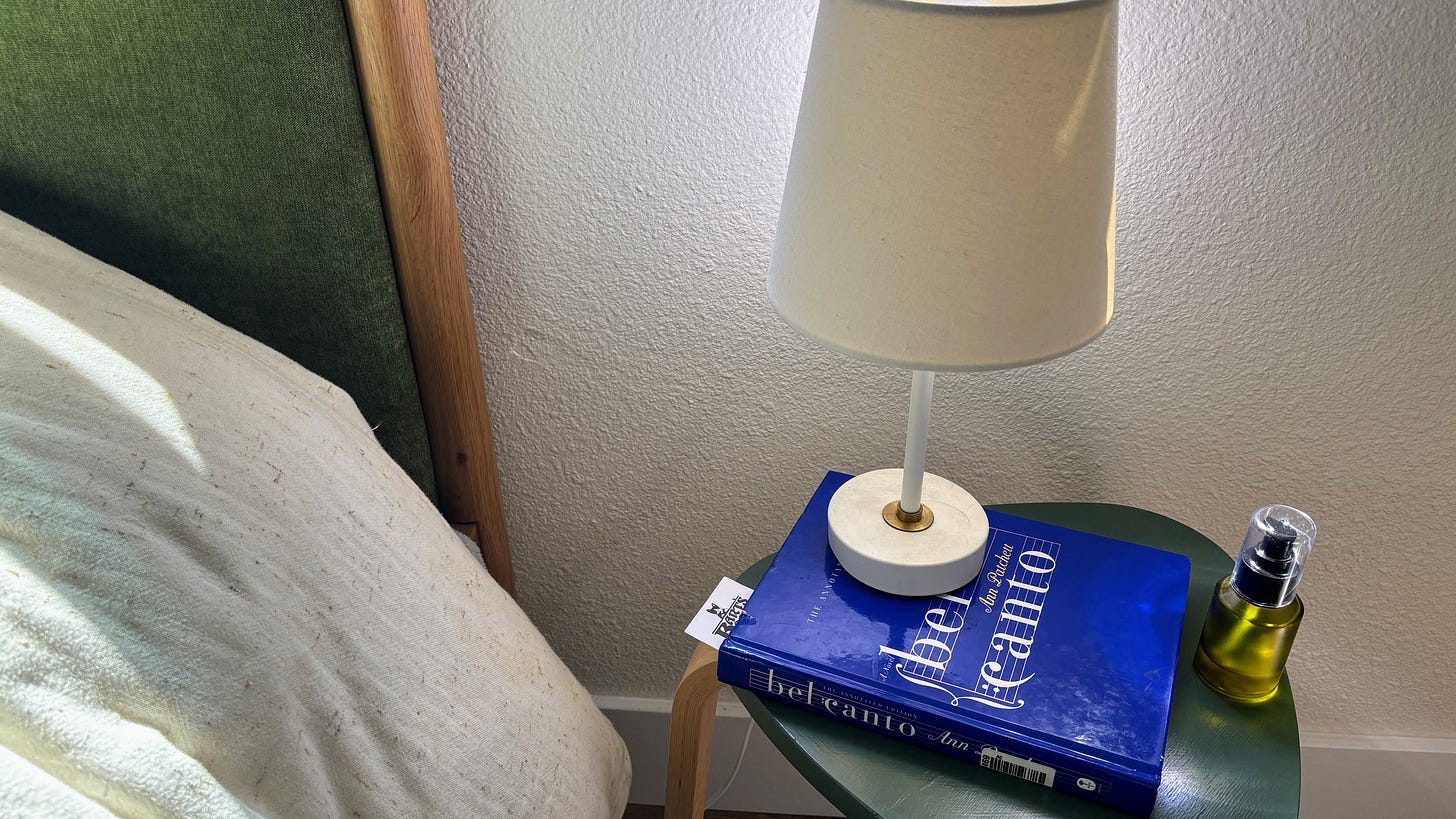Here are two books and a little project that are teaching me about the world this month.
1. “What Happened to You: Conversations on Trauma, Resilience, and Healing” by Dr. Bruce D. Perry and Oprah Winfrey
A writer and thinker who I’ve learned so much from, Ingrid Fetell Lee, recommended this 2021 book in a recent newsletter. Co-authored by a brain development expert, it examines how childhood experiences explain much of human behavior. Since becoming a mother, I wonder more about people’s upbringings when I observe them acting in troubling or admirable ways. This book has compounded that curiosity.
One of the concepts that I can’t stop thinking about is how humans unconsciously elicit certain behavior from others and subsequent outcomes based on our early experiences of the world. We create our own realities on some level. It’s a scientific explanation for the buzzy and polarizing idea of manifesting.
Perry shares an anecdote about a playful toddler in an airport approaching a stranger who just berated the gate attendant. Having only experienced loving and patient caregivers, she expects the same from him, and tries to engage the man in a game of peek-a-boo. He rejects her, but she eventually wins him over and has him playing on the floor. She believed that all humans are kind and unconsciously elicited that behavior.
In contrast, Perry tells a story about a withdrawn preschooler living with a depressed, neglectful single parent. Her affectionate teacher shows her caring attention but is consistently rebuffed. After month, the child gets the nerve to raise her hand in class, but the teacher inadvertently overlooks her. Even the most empathetic people need some reciprocal feedback to stay engaged. The child elicited the only reality she knew, that she’s not worthy of attention.
This concept of “eliciting behavior” gives me so much to consider. How will the childhood I’m creating for my children shape how the world treats them and how they experience life? How has my childhood affected me, and how can I change my beliefs and expectations for more positive outcomes?
2. “Start small,” with flower seeds
I’ve fantasized about taking up gardening since we started talking about trading our foggy San Francisco apartment for a sunny San Diego house. We’ve had our own backyard in Southern California for 3 years now, but I’ve been paralyzed about where to start. Watching YouTube tutorials and talking to gardener friends has left me more overwhelmed and confused. What growing zone are we in, exactly? What should I plant this time of year? What type of soil? How much water?
I finally ended up just planting all the flower seeds we’ve collected as favors from kids’ birthday parties in one of our two garden boxes. I broke up the soil that was already in there, mixed it with a bit of compost, and sprinkled them in rows.
And they’re growing! I’m checking in daily to look for new sprouts and make sure the soil isn’t dry.
“Start small” is one of the mantras from a self-described anti-self-help writer I follow, Kendra Adachi. She has a book and podcast called “The Lazy Genius” and is always talking about the strategy of starting small and avoiding “big trash bag energy.” (I get such a thrill from “big trash bag energy.” Ask me about how I threw out all my skincare products a few years ago or my annual Marie Kondo sessions.)
As far as gardening goes, this project is so small, but I’m hopeful that it’s the start of something. How good would it feel to pick handfuls of herbs and veggies from my backyard next year?
3. “Bel Canto” by Ann Patchett
Novelist Ann Patchett just released an annotated version of her breakout novel, “Bel Canto,” for its 25th publication anniversary. It’s a fascinating story about a hostage situation in South America gone absurdly wrong at a party with a famous soprano and a Japanese businessman.
This new version has the author’s handwritten notes in the margins, critiquing and praising her old writing and sharing backstory and anecdotes. I’m learning about novel-writing and structure and plot and appreciating the book on a new level.
It’s also reassuring to be reminded that there’s no such thing as perfection, even in a masterpiece. Patchett points out errors and sloppy sentences and is ruthless with her suggested cuts.
If you’re the sort of person who also enjoys “director’s commentary” and the like, start with the original novel and then check out the annotated version. I also loved Patchett’s novels “Commonwealth,” “The Dutch House,” and Tom Lake,” in that order.








I love your note about gardening and starting small. I am actually a garden coach! This is what I tell my clients all the time -- just start, it doesn't have to be perfect. Truthfully, in gardening it never will be. I too am trying to redefine what it means to be alive in this era of hyper-productivity and superficial validation. If inclined, my substack -- Slow Fox Living -- is all about finding ways beyond that. Love to connect with more folks on this journey. https://kwarms.substack.com/
This book… 🥹 was the first literature I came across some 3 years ago, when I was quite a novice to a very personal healing journey. I haven't yet had a look at your writing or why you used a photograph of the book “What happened to you” for a cover but I was hooked. Immediately (and will now venture further into the why of your post).
Read your post now. Ha! Especially the first part fits nicely to what I have come to ponder just here in a poetic way:
The impact of caregivers on their children.
https://open.substack.com/pub/ennarazal/p/hridaya?utm_source=share&utm_medium=android&r=4n4jmq